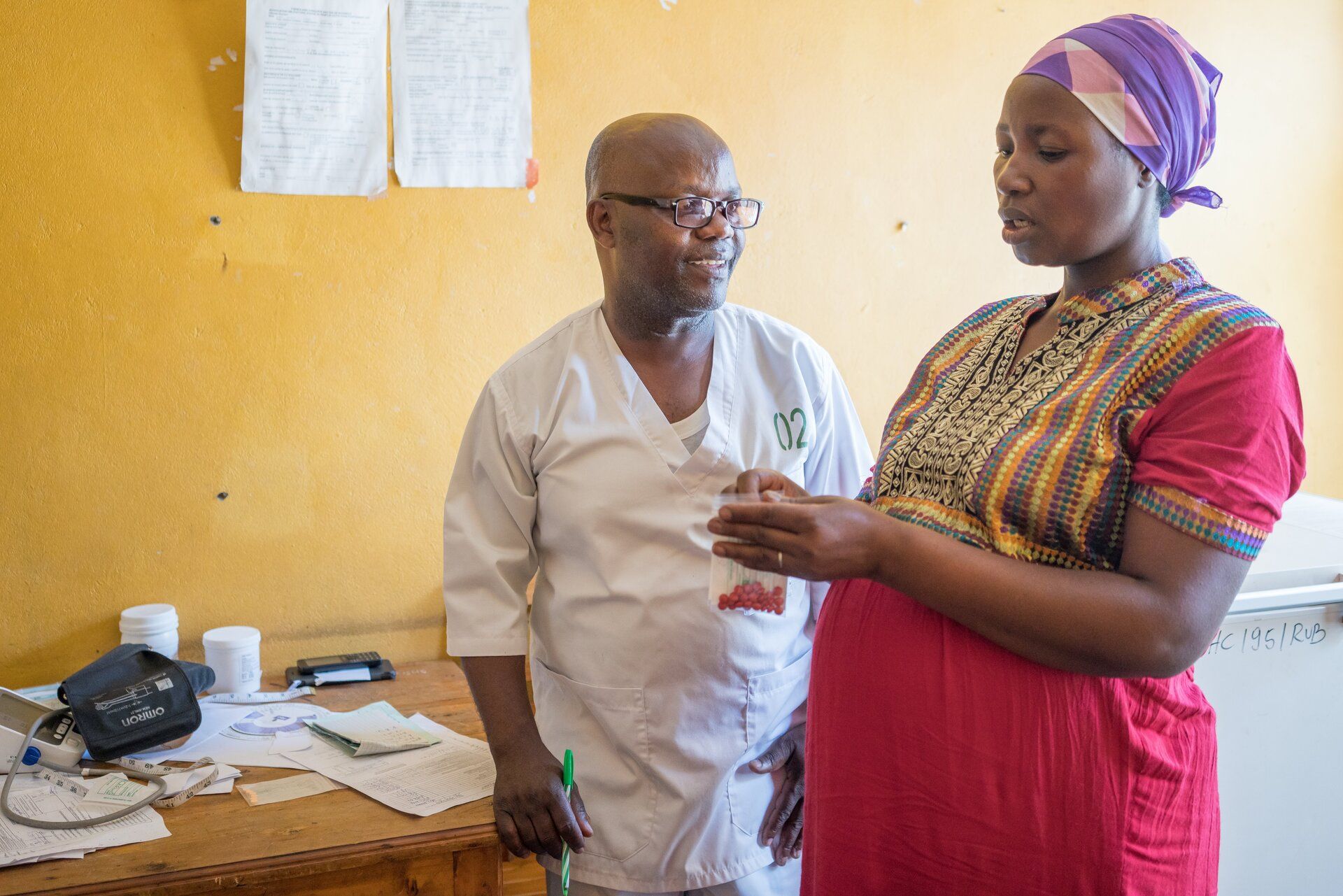
Nurse Danany, left, hands prescribed medicine to a patient receiving a prenatal check up in Rwanda. | Photo @Gates Archive/Diana Zeyned Alhindawi
What you probably already know: The Gates Foundation has announced a substantial commitment of $2.5 billion through 2030 dedicated exclusively to accelerating research and development efforts focused on women's health. The pledge will support more than 40 innovations in five chronically underfunded areas across the globe:
• Obstetric care and maternal immunization to make pregnancy and delivery safer.
• Maternal health and nutrition.
• Gynecological and menstrual health for better diagnoses and treatment.
• Offering more accessible and effective gynecological options.
• Improve diagnosis and treatment of sexually transmitted infections.
The foundation selected the priority areas where it thought it could save and improve the most lives of women in low- and middle-income countries.
Why it matters: An estimated 218 million women of reproductive age (between 15 and 49) don’t have access to modern contraception, and 49% of pregnancies in those countries (think West and Central Africa), or about 111 million annually, are unintended. Research shows that family planning programs in some lower- or middle-income countries, such as India, have been successful. It’s worth noting that health outcomes for women worldwide strengthen human rights, global stability and collective progress.
What it means: A 2021 analysis by McKinsey & Co. notes that just 1% of health care research and innovation goes toward health conditions specific to women beyond oncology. “Investing in women’s health has a lasting impact across generations,” Bill Gates says. “It leads to healthier families, stronger economies, and a more just world, yet women’s health continues to be ignored, underfunded and sidelined. Too many women still die from preventable causes or live in poor health.” Research shows that every $1 invested in women’s health leads to $3 in economic growth. Closing the health gender gap could add $1 trillion annually to the global economy by 2040.
What happens now? The foundation is encouraging governments, philanthropists, investors and private-sector companies to also invest in women’s health, noting that critical issues including preeclampsia, gestational diabetes, heavy menstrual bleeding and menopause remain deeply under researched. “This is the largest investment we’ve ever made in women’s health research and development, but it still falls far short of what is needed in a neglected and underfunded area,” says Dr. Anita Zaidi, president of the Gates Foundation’s Gender Equality Division. “We want this investment to spark a new era of women-centered innovation, one where women’s lives, bodies and voices are prioritized.”
